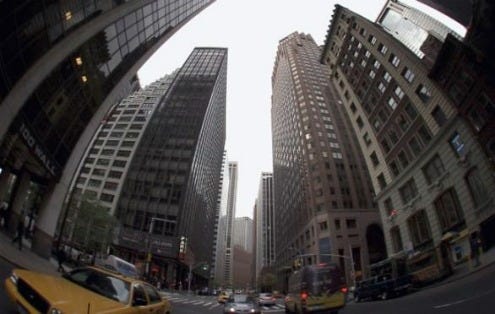The Flaw

For info and showtimes, click here.
Watching "The Flaw" by director David Sington, which chronicles how American fiscal policy led us to the doorstep of the Great Recession, I couldn't help thinking that I'd seen this material before. With its mix of dramatic graphs, whimsical nostalgia cartoons and Important White Guy talking heads, it all seemed very logical and very familiar.
And then it struck me: "Inside Job," which won the Oscar for Best Documentary a few months ago, covered much of this same territory. "The Flaw" takes a longer view, comparing how economic disparity between the classes and rising national debt mirrored the great economic crashes of 1929 and the 21st century Aughts.
But still, all the talk about sub-prime mortgages and collateralized debt obligations no longer had the power of novelty since I'd heard it before in "Inside Job."
"The Flaw" does bring us face-to-face with some of the losers in the bursting of the real estate bubble, reflecting a wide range of financial literacy and sympathetic stories.
It's hard not to feel for the optician from Queens who was sold a house she couldn't afford with the bank's assurance of refinancing a year later, only to be out of luck when property values plunged. Then, when she applies for a loan modification, she's dinged because she was a responsible citizen and made all her mortgage payments on time despite the hardship they imposed.
On the flip side is the real estate investor who bought home after home in order to make a quick buck, leveraging debt on one property to buy another. Now he's underwater and can't sell, and the audience can't help thinking he deserves the hole in which he dug himself.
Perhaps the most surprising witness/victim is an economic correspondent for the New York Times, who bought a house for himself and his new bride for nearly a half-million bucks, despite the fact that most of his income goes to his kids and ex-wife in the form of child support and alimony. Still, he's honest enough with himself and the filmmakers to admit that did so in order to "feel normal" after a rough divorce.
Things get a little wonky when Sington takes us into the office of one economics professor after another, who look at past trends with great insight although, as we've seen in recent years, even the brightest academic minds can't make solid predictions in a fiscal system as complex as ours. I'm always suspicious of "experts" who look back on catastrophes and opine that we should have seen it coming. I want to ask: What were you up to?
The short version of the film's thrust is hard to deny, though: Most wealth creation in the past few decades has gone into the hands of the wealthiest Americans, and wages for the vast majority in the middle have stagnated. By disconnecting debt from tangible assets like a house and turning those loans into a fungible commodity, we sowed the seeds of our own ... well, whatever this is we're in right now. Not destruction — but nasty, nasty times for a great many people.
I will cite one aspect in which I think "The Flaw" exceeds "Inside Job." Whereas the latter film was an often spit-flecked invective, "The Flaw" more or less retains a journalistic even keel. That's a personal preference, but still one in which I put stock.
3 Yaps



